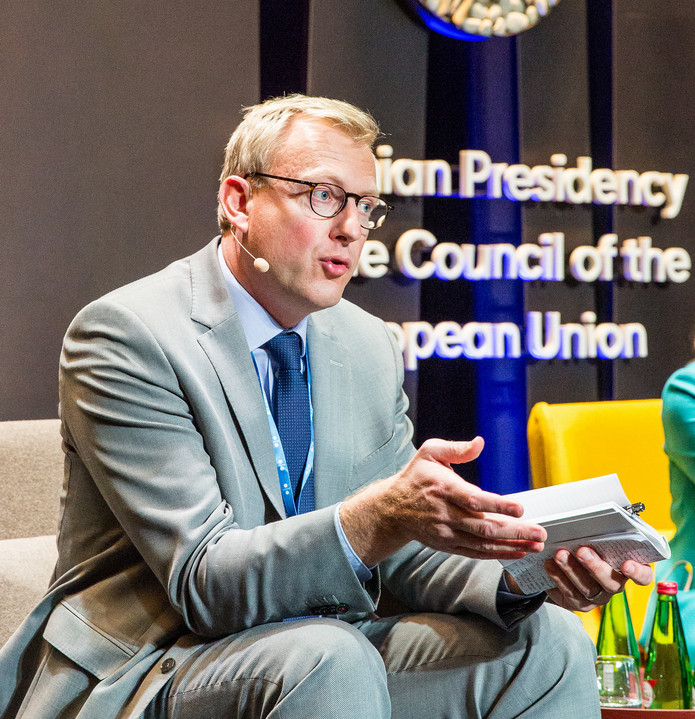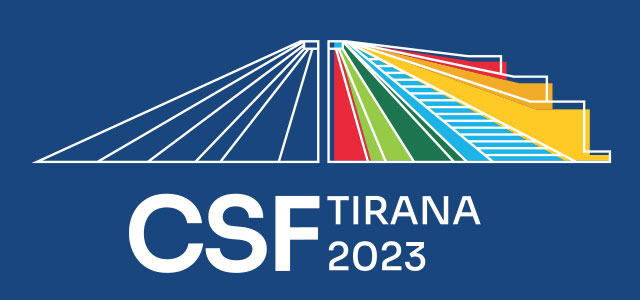Revitalising the EU enlargement policy for the Western Balkans: End of the Berlin Process?

After years of strategic neglect by the European Commission, whose President Juncker infamously stated in July 2014 that there would be no enlargement of the EU under his watch, the mood in the Union has changed. The Western Balkans have been receiving renewed attention since the refugee and migrant crisis of 2015-6, as a result of fears about rising Russian or Turkish influence and because of concerns that EU accession is such a distant prospect that it cannot generate or maintain momentum for reform.
In his State of the European Union speech in September, Juncker announced the Commission’s plan to prepare a strategy for EU accession of frontrunner candidates Serbia and Montenegro by 2025. With a view to resolving bilateral disputes and creating “irreversible progress” on the path to membership by the end of the Commission’s mandate in 2019, High Representative Mogherini has prioritised the Western Balkans in the implementation of the EU Global Strategy. In the same vein, President Tusk informed the European Council of the plan to organise an EU-Western Balkans Summit during Bulgaria’s EU Presidency in May 2018 — five years since the last one.
These plans to re-energise the enlargement policy as the EU’s main mode of engaging with the region are raising questions about the sense of keeping policy initiatives which have proliferated in the meantime, notably the Berlin Process.
Berlin Minus?
Launched by Chancellor Merkel in August 2014 to assuage wounded feelings in the region arising from Juncker’s statement, the Berlin Process was intended to provide a framework for a period of four years to make “additional real progress” in the reforms of the Western Balkan countries. A prime was placed on “resolving outstanding bilateral and internal issues, and in achieving reconciliation within and between the societies in the region.”
Taking place outside of the normal EU decision-making process, and with only seven member states in attendance, four summits have had the merit of maintaining a focus on the region and bringing all the leaders of the Western Balkan countries around the same table. Side events have also been organised with representatives from the business community and civil society organisations. But beyond the annual pageantry, there has been precious little intermediate follow-up at the intergovernmental level.
In terms of practical outputs and concrete projects for the region, the result of the Berlin Process is rather thin. There was an overly optimistic approach that stimulating economic growth by increasing connectivity would automatically be accompanied by increased efforts on rule of law and legal standards. Unfortunately, this did not happen.
Events of the past years have shown just how fragile the region remains, with weak state institutions, parliamentary boycotts by opposition parties, authoritarian tendencies, increased erosion of the democratic checks and balances, alarming levels of corruption, and a crackdown on free media in some countries. Macedonia has seen a positive turnaround in recent months, but the situation in the rest of the region has only grown worse over the years.
The EU failed to intervene in a timely and convincing manner across the region and did not revise its policies or raise its profile. Even if heavy-hitters like Merkel, Macron and Gentiloni attended this year’s powwow in Trieste, the heads of state or government of 21 EU countries have not owned up to the Berlin Process.
For its part, the European Commission gave the impression of simply going through the motions of engaging with the countries of the region through its annual country reports. Some countries did move up the EU accession ladder, such as Bosnia and Herzegovina’s membership application being accepted, but this had little impact on domestic politics.
Although the annual country reports became increasingly critical, reflecting the deterioration in democratic standards overall, there was no re-calibration of the EU’s approach, which one would have expected. The political vision of the EU to integrate the Western Balkans, as reflected in the 2003 Thessaloniki Agenda, simply got lost in the technocratic language of ticking boxes in the list of reforms required for EU accession. This meant that the deep-rooted symptoms of malaise in the region were not given the attention they deserved.
Unresolved bilateral disputes, such as those between Croatia and its other Western Balkan neighbours and between Macedonia and Greece, have undermined the credibility of the EU enlargement process itself and of the member states directly concerned, in particular those in the Berlin Process.
Re-centralising EU enlargement efforts
The Western Balkans constitute the number one geopolitical challenge to the European Union. The EU has all the necessary tools at its disposal to restore credibility to its enlargement policy and its relationship with the countries of the region. The recent statements by Juncker, Mogherini, Tusk and others about redoubling and centralising efforts to bring the Western Balkans in from the cold should therefore we welcomed.
However, with the revival of the enlargement policy towards the Western Balkans, the value added of any continuation of the Berlin Process may only lie in the new fund for infrastructure and technology. Rather than aiming for a fully-fledged Berlin ‘Plus’ Process, as many of its functional elements as possible should be brought into the EU’s fold.
Steven Blockmans, Head of EU Foreign Policy, CEPS (Brussels)
